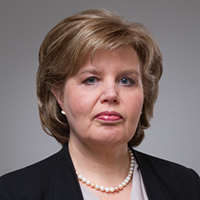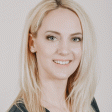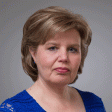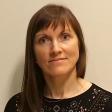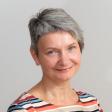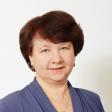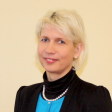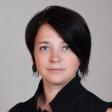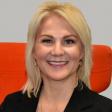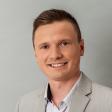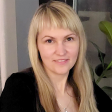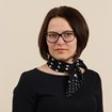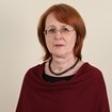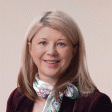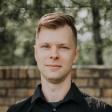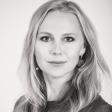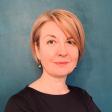Faculty of Health and Sports Sciences
The Faculty of Health and Sports Sciences is based on the World Health Organisation's principle that "health is a state of complete physical, mental and social well-being and not merely the absence of disease or infirmity."
We often only appreciate the true value of health in situations where we are faced with the limitations caused by various health disorders - the rehabilitation professionals trained by the faculty can help in these situations, forming a multi-professional team of specialists who promote and optimise the opportunities for people with health disorders to participate in a broad range of everyday activities.
We are combining a forward-looking healthcare education with respect for our traditions. By studying with us today, you will gain the knowledge to provide the kind of care that will be needed tomorrow.
Prof. Inga Millere, dean, Faculty of Faculty of Health and Sports Sciences
The Faculty of Health and Sports Sciences offers the broadest choice of study programmes at RSU. The faculty's study programmes are based on providing and improving multidisciplinary education and research in the fields of healthcare, public health, rehabilitation, social welfare, and sports, which are grounded in a biopsychosocial and holistic approach at the societal, group and individual levels. In an era of global challenges such as population ageing, urbanisation, infectious diseases, and military threats, the importance of interdisciplinary and up-to-date trained professionals is particularly acute.
Studies
The Faculty of Health and Sports Sciences offers a wide range of 1st level professional higher education, bachelors and masters study programmes, which include programmes unique to Latvia, as well as inter-university programmes. We pride ourselves on offering high quality interdisciplinary education, training students to become future innovators and industry leaders!
You will have the opportunity to gain not only excellent knowledge, but also outstanding professional skills by training in our Medical Education Technology Centre where you can participate in medical simulation training in a safe environment. We also offer students the opportunity to develop their skills in practical health promotion and rehabilitation: health sports professionals can use the gym that is adapted for their studies, nutritionists learn in well-equipped training kitchens, and physiotherapists, occupational therapists and audio speech therapists can use specialised training rooms.
By studying with us, you can acquire the knowledge, skills, and competences that will give you a solid foundation for your career and your future.
Study programmes
- Nursing – professional bachelor's degree in health care
- Public Health – master's degree of health science in health care
- Social Work with Children and Youth – professional master's degree in social work
Final thesis research subject areas
- Department of Nursing and Midwifery
Subject areas Potential research leaders Modeling nurse-patient (midwife-patient) interaction to promote equality in the care process Inta Višņevska, Lelde Atvara, Inita Stūre-Stūriņa, Dagnija Brutāne, Diāna Platace, Valentīna Beļavska, Laila Laganovska Challenges in health care - demographic change, changing disease treatment and care model, changing care roles and expectations Agita Melbārde-Kelmere, Diāna Platace, Eva Cela, Laila Laganovska Quality of care research, development of care quality criteria, monitoring. Quality indicators in care Inta Višņevska, Lilija Antoņēviča, Agita Melbārde-Kelmere, Inita Stūre-Stūriņa, Ilze Ansule, Dagnija Brutāne, Eva Cela, Laila Laganovska Care documentation as a tool for promoting the quality of patient care Inta Višņevska, Lilija Antoņēviča, Agita Melbārde-Kelmere, Inita Stūre-Stūriņa, Ilze Ansule, Dagnija Brutāne, Eva Cela, Laila Laganovska Patient safety in the care process. Nurses are leaders in patient safety culture. The role of nurse leaders. Inta Višņevska, Agita Melbārde-Kelmere, Inita Stūre-Stūriņa, Ilze Ansule, Diāna Platace, Eva Cela Nursing (care) diagnoses Inita Stūre-Stūriņa, Lelde Atvara Occupational and environmental health issues (occupational safety, workload, prevention) Diāna Platace, Lilija Antoņēviča, Kristaps Circenis, Agita Melbārde-Kelmere, Ilze Ansule, Dagnija Brutāne, Anita Znotiņa, Ineta Raudova, Valentīna Beļavska, Eva Cela, Inga Millere Lack of nurses / midwives in the labor market. Problems of human resources Laila Laganovska, Ineta Raudova, Eva Cela, Inga Millere Issues of professional ethics Laila Laganovska, Ilona Zariņa, Ilze Ansule, Olga Juhņeviča Limits of competence and professionalism of nurses / midwives and legal responsibilities Laila Laganovska, Kristaps Circenis, Inita Stūre-Stūriņa, Dagnija Brutāne, Ineta Raudova The problem of population aging (care of seniors and its organization) Aiga Lasmane, Dagnija Brutāne, Ilona Zariņa Improving health care and quality of life Olga Juhņeviča, Evija Melbārde, Agita Melbārde-Kelmere, Dagnija Brutāne, Diāna Platace, Eva Cela, Inga Millere Addressing the inconsistencies of a healthy lifestyle Līga Ēriksone, Dagnija Brutāne, Diāna Platace, Ilona Zariņa Person - centered healthcare Olga Juhņeviča, Agita Melbārde-Kelmere, Inta Višņevska, Inita Stūre-Stūriņa, Ilze Ansule, Dagnija Brutāne, Diāna Platace, Eva Cela, Kristaps Circenis Patients' experience in the healthcare process Gunta Bēta, Inita Stūre-Stūriņa, Ilze Ansule, Dagnija Brutāne, Diāna Platace, Ilona Zariņa, Olga Juhņeviča, Eva Cela, Inga Millere Supervision (management) of chronic patients and the role of the nurse in this process Aiga Lasmane, Inta Višņevska, Agita Melbārde-Kelmere, Dagnija Brutāne, Diāna Platace Interdisciplinary cooperation in care Anita Znotiņa, Inta Višņevska, Evija Melbārde, Agita Melbārde-Kelmere, Ilze Ansule, Dagnija Brutāne, Eva Cela Transitional care Inga Millere Complementary and alternative medicine methods, the role of nurses / midwives in it, cooperation with patients / families / society Lelde Atvara, Diāna Platace, Ilona Zariņa Compliance of nursing / midwifery education with health care practice (and vice versa) Gunta Bēta, Kristaps Circenis, Līga Ēriksone, Olga Juhņeviča, Eva Cela Development and testing of care strategies. New care models. Evija Melbārde, Dagnija Brutāne Standardized vs. individualized care Eva Cela, Evija Melbārde Promoting the autonomy of nurses / midwives, developing decision-making competence Kristaps Circenis, Dagnija Brutāne Mentoring in health care and professions Eva Cela, Inta Višņevska, Kristaps Circenis, Inita Stūre-Stūriņa, Evija Melbārde Introduction of new materials and technologies in tertiary care (adaptive viscoelastic materials, automated hospital management) Ilona Zariņa E-health; Telemedicine development and care opportunities. Technological innovations in healthcare. Eva Cela, Inita Stūre-Stūriņa, Agita Melbārde-Kelmere, Dagnija Brutāne Introduction of modern patient monitoring, mobile sensors, integrated care technologies and approaches in healthcare Ilona Zariņa, Evija Melbārde, Dagnija Brutāne Innovative technologies and digital skills in the care process / nursing (midwifery) education Ilona Zariņa, Evija Melbārde, Agita Melbārde-Kelmere Data security in the healthcare process Dagnija Brutāne Professional identity and values Laila Laganovska, Kristaps Circenis, Agita Melbārde-Kelmere, Dagnija Brutāne, Olga Juhņeviča, Eva Cela Nurses, midwife emotional health, personality factors, motivation Laila Laganovska, Kristaps Circenis, Agita Melbārde-Kelmere, Inita Stūre-Stūriņa, Dagnija Brutāne, Diāna Platace, Inga Millere Resource management in patient groups Laila Laganovska Environmental policy research Eva Cela Environment and care Rita Konstante, Agita Melbārde-Kelmere, Diāna Platace, Anita Znotiņa, Ineta Raudova Collaborative research / networking practice and research Laila Laganovska, Kristaps Circenis Medical care and nursing care technologies Eva Cela, Ilona Zariņa Research of disease prevention, direct nursing care and rehabilitation (in all patient groups) Eva Cela Interdisciplinary care of chronic and complex patients, family-oriented care Dagnija Brutāne, Aiga Lasmane, Līga Ēriksone - Department of Public Health and Epidemiology
Subject areas Potential research leaders Health promotion and disease prevention Inese Gobiņa, Anita Villeruša, Lauma Spriņģe, Aija Bukova-Žideļūna, Toms Pulmanis, Inese Stars, Ģirts Briģis, Dzintars Mozgis, Baiba Rozentāle, Anda Ķīvīte-Urtāne, Gunta Lazdāne Environmental health and risk factors Ģirts Briģis, Žanna Martinsone, Ivars Vanadziņš, Anita Villeruša, Inese Gobiņa, Aija Bukova-Žideļūna, Anda Ķīvīte-Urtāne Occupational health, work-related risk factors and prevention Ģirts Briģis, Žanna Martinsone, Ivars Vanadziņš, Anita Villeruša, Inese Gobiņa, Aija Bukova-Žideļūna, Anda Ķīvīte-Urtāne Research on health care systems Ģirs Briģis, Dins Šmits, Dzintars Mozgis, Daiga Behmane, Anita Villeruša Epidemiology of communicable and non-communicable disease Inese Gobiņa, Anita Villeruša, Lauma Spriņģe, Aija Bukova-Žideļūna, Toms Pulmanis, Inese Stars, Ieva Strēle, Ģirts Briģis, Dzintars Mozgis, Baiba Rozentāle, Anda Ķīvīte-Urtāne Health-related behaviour Inese Gobiņa, Anita Villeruša, Lauma Spriņģe, Aija Bukova-Žideļūna, Toms Pulmanis, Inese Stars, Ģirts Briģis, Dzintars Mozgis, Baiba Rozentāle, Anda Ķīvīte-Urtāne, Dins Šmits - Department of Welfare and Social Work
Subject areas Potential research leaders Social work practice with families. Mārtiņš Moors, Liāna Deklava Acceptance and awareness practice in social work Silva Rupaine, Liāna Deklava Work-life balance as a social: social work perspective Anna Broka, Lolita Vilka Use of smart technologies to provide social services. Marika Lotko, Mārtiņš Moors Inter-institutional cooperation in matters of parental custody rights. Lolita Vilka, Ilze Trapenciere Benefits and challenges of applying creative strategies and methods in social work with children and youth Silva Rupaine, Anita Ābele, Liāna Deklava Provision of care for children left without parental care in Riga foster families. Mārtiņš Moors, Maruta Pranka Research and assessment of seniors' social needs Ārija Baltiņa, MārtiņšMoors, Maruta Pranka Impact of debts (taxes, maintenance, credit, etc.) on the security and quality of life of families with children: a social work perspective Lolita Vilka, Ilze Trapenciere, Anna Broka Legal protection of shelter residents Lolita Vilka, Ilze Trapenciere, Mārtiņš Moors Innovation and good practice in providing social services to vulnerable groups in local communities of Latvia. Lolita Vilka, Anna Broka, Ilze Trapenciere, Anita Ābele Management and proactivity in in municipalities and local communities of Latvia. Lolita Vilka, Anna Broka, Ilze Trapenciere Evaluation of professional knowledge, skills and attitudes of social workers in micro / meso practice Lolita Vilka, Marika Lotko, Anita Ābele Community-based social services for persons with mental disorders in municipalities. Lolita Vilka, Liāna Deklava, Marika Lotko, Anita Ābele Volunteering as a resource for social work in Latvia Lolita Vilka, Marika Lotko, Anita Ābele Credit and debt impacts on the social security Anita Ābele, Lolita Vilka, Maruta Pranka Observance of the principles of human rights and social justice in social work in Latvia. Olafs Brūvers, Marika Lotko Social logistics in providing social services Lolita Vilka, Marika Lotko Social advocacy practice in reducing social inequality Olafs Brūvers, Marika Lotko Measuring the efficiency and quality of social work Liāna Deklava, Mārtiņš Moors, Lolita Vilka - Department of Health Psychology and Paedagogy
Subject areas Potential research leaders Adaptation and construction of psychological and art-based assessment tools Inese Paiča, Velga Sudraba, Jana Duhovska Adapting and constructing cognitive tests Kristīne Šneidere, Ingūna Griškēviča Use of Latvian Clinical Personality Inventory in different patient groups Jeļena Koļesņikova Developing a personality functioning assessment tool Velga Sudraba Alexitimia in different client/patient groups, its impact on health behaviour and the quality of life Velga Sudraba Digital tool '3D emotion composition' Inese Paiča Visual method '3D emotion composition' Inese Paiča Resilience in different patient groups Velga Sudraba, Elīna Zelčāne Associations and differences in resilience (different age groups and/or professional groups) Guna Svence Association between resilience and other personality indicators (options: well-being, personality traits, coping strategies, self-respect, growth thinking) Guna Svence Eco-psychological interventions and recreational practice for different client groups Ingūna Griškēviča, Kristīne Mārtinsone Emotion regulation Inese Paiča, Velga Sudraba Compliance in different patient groups Velga Sudraba The role of self-compassion in health preservation Elīna Zelčāne Normal and pathological cognitive aging and associated factors Kristīne Šneidere, Ervīns Čukurs Psychological help and support working remotely Ervīns Čukurs, Ilona Krone Psychological help and support in working with different groups of clients and patients Velga Sudraba, Ilona Krone Health behaviors as disease prevention and online interventions to promote them Zane Gulbe, Jana Duhovska Investigation of false memories in different client or patient groups Kristīne Šneidere, Velga Sudraba Psycho-oncology Jana Duhovska Spirituality as a resource in the professional and personal life Kristīne Mārtinsone Professional identity and professional activity in times of change (digitalisation, climate change, pandemics) Elīna Akmane Development of professional skills Aira Aija Krūmiņa Professional identity and its development Anita Pipere, Elīna Akmane Professional activity and its assessment Kristīne Mārtinsone Self-help and self-care as a resource in professional and personal life Kristīne Mārtinsone, Ilona Krone, Jana Duhovska Social-emotional health for teachers (or other professional groups) Guna Svence Associations and differences in social-emotional health and vitality indicators for individuals in different professions and ... (other groups) Guna Svence Athletes' personality traits, attitudes, behavior, motivation, cohesion, psychological resilience, physical Self-concept Gatis Upesleja Bibliometric analysis Sanita Šuriņa Systematic reviews Inese Paiča, Velga Sudraba, Sanita Šuriņa Supervisory needs in different professional fields Baiba Pumpiņa Supervision in the educational environment Baiba Pumpiņa, Kristīne Mārtinsone Adaptation of supervision methods and techniques Inese Paiča, Ilona Krone Pedagogical competence in the health care environment Aira Aija Krūmiņa - Department of Sports and Nutrition
Subject areas Potential research leaders Possibilities of using different technologies in fitness Voldemārs Arnis, Indra Vīnberga, Uģis Ciematnieks, Irēna Upeniece Effect of high intensity interval training on physical readiness indicators and body composition Voldemārs Arnis, Uģis Ciematnieks, Indra Vīnberga Effect of different strength training regimes on strength, strength endurance and body composition Voldemārs Arnis, Uģis Ciematnieks, Indra Vīnberga Changes in physical activity and use of various physical exercises during the restrictions associated with the Covid-19 pandemic Voldemārs Arnis, Una Veseta, Indra Vīnberga Aerobic work capacity of students of different study programs and their changes during studies Voldemārs Arnis, Una Veseta, Indra Vīnberga Study programme 'Health Sports Specialist' applicants' aerobic work capacity, their relation to various factors and changes in the period of 15 years Voldemārs Arnis, Una Veseta, Indra Vīnberga Various group classes in fitness clubs Maruta Hoferte, Indra Vīnberga, Irēna Upeniece, Anita Gauruča, Uģis Ciematnieks, Daina Lazdeniece-Auniņa Development of physical features for health promotion Uģis Ciematnieks, Indra Vīnberga, Una Veseta, Andris Eikens Opportunities for physical activity for seniors Maruta Hoferte, Indra Vīnberga, Irēna Upeniece, Anita Gauruča, Una Veseta Variations of technical sports equipment, exercises and methods Uģis Ciematnieks, Indra Vīnberga Study of the volume and intensity of physical activity for health promotion in the different age groups Uģis Ciematnieks, Indra Vīnberga, Una Veseta Monitoring of physical activity in the health sports Maruta Hoferte, Indra Vīnberga, Irēna Upeniece, Anita Gauruča, Uģis Ciematnieks, Una Veseta The importance and application of physical exercises for women during pregnancy Maruta Hoferte, Inese Kanneniece Physical activity and nutrition Lolita Neimane, Laila Meija, Māra Kampara, Jānis Leitis Effects of physical activity on personality traits and cognitive processes Irēna Upeniece, Lāsma Reide Motivation to engage in physical activity Irēna Upeniece, Kristīne Šneidere The prevalence of malnutrition in different patient groups Lolita Neimane, Laila Meija, Liene Sondore, Māra Kampara Antioxidants in nutritional products Lolita Neimane, Andrejs Šķesters Children and teenagers dietary habits Lolita Neimane, Laila Meija, Liene Sondore Nutrition habits of athletes in different sports Māra Kampara, Jānis Leitis Overweight and obesity correction options with nutrition Lolita Neimane, Laila Meija, Māra Kampara, Liene Sondore Nutritional therapy for various diseases Laila Meija, Lolita Neimane Nutrition habits of pregnant women Laila Meija, Lolita Neimane, Māra Kampara International students Critical analysis of nutrition myths vs facts Māra Kampara, Mg. sc. sal. Survey on medical students’ knowledge and understanding of nutrition Māra Kampara, Mg. sc. sal. Overview on Fad diets and their health consequences Māra Kampara, Mg. sc. sal. Alcohol consumption – pros, cons, recommended limits Māra Kampara, Mg. sc. sal. Diet and the sleep Māra Kampara, Mg. sc. sal. Sustainable diet Māra Kampara, Mg. sc. sal. Nutrition for older adults Māra Kampara, Mg. sc. sal. Nutrition / Sports Nutrition related topics by student’s choice Māra Kampara, Mg. sc. sal. Postprandial (hyperinsulinemic) hypoglycaemia after bariatric surgery Guna Bīlande, Mg. sc. sal. Long term complications after bariatric surgery Guna Bīlande, Mg. sc. sal. Quality of life after bariatric surgery Guna Bīlande, Mg. sc. sal. Malnutrition risk assessment after bariatric surgery Guna Bīlande, Mg. sc. sal. Obesity treatment methods and latest trends (literature review for the last 5 years) Guna Bīlande, Mg. sc. sal. Effects of obesity on immune system Guna Bīlande, Mg. sc. sal. Obesity and sleep apnea Guna Bīlande, Mg. sc. sal. Malnutrition in obesity before and after bariatric surgery Guna Bīlande, Mg. sc. sal. Vegan diets for athletes Guna Bīlande, Mg. sc. sal. Vegetarian & vegan nutrition during pregnancy Guna Bīlande, Mg. sc. sal. Vegan diet in children and adolescents Guna Bīlande, Mg. sc. sal. Metabolic rate changes after bariatric surgery Guna Bīlande, Mg. sc. sal. Ghrelin and leptin – metabolism, weight, obesity Guna Bīlande, Mg. sc. sal. Covid-19 influence on eating behaviour Guna Bīlande, Mg. sc. sal. Eating disorders Eva Kataja, Mg. sc. sal. Overweight and obesity in kids Eva Kataja, Mg. sc. sal. Nutrition (and/or weight changes) and emotional wellbeing Eva Kataja, Mg. sc. sal. Nutrition during pregnancy (and/or lactation) Eva Kataja, Mg. sc. sal.
Faculty Council
The Council of the Faculty of Public Health and Social Welfare is a collegial administrative body of the faculty under the authority of the Dean that exercises the duties and obligations prescribed by the bylaws of the Faculty and by the University’s internal regulations.
- Council members
- Academic Staff, Lead Researcher, Project Manager, Head of Study Programme Specialisation, Employer's RepresentativeDirector of Study Programme, Academic Staff, Lead researcher, scientific project managerDirector of Study Programme, Academic Staff, Sociālās labklājības studiju virziena vadītāja
Employees
Faculty of Health and Sports Sciences
Fri - 10:00–12:30, 13:00–15:30
Related news
 The Society. Health. Welfare. conference examines the human life cycle from childhood to old ageFor Students, For RSU Employees, Conferences, workshops, Research, Traditional Events
The Society. Health. Welfare. conference examines the human life cycle from childhood to old ageFor Students, For RSU Employees, Conferences, workshops, Research, Traditional Events RSU Research Week Opening Plenary Session highlights the interaction between medicine, technology, and behavioural scienceFor Students, For RSU Employees, Conferences, workshops, Research, International Cooperation, Traditional Events
RSU Research Week Opening Plenary Session highlights the interaction between medicine, technology, and behavioural scienceFor Students, For RSU Employees, Conferences, workshops, Research, International Cooperation, Traditional Events RSU and RSU LASE gain valuable insights from Northern European sports universities for the development of new study programmesFor Students, Consolidation, For RSU Employees, Internal consolidation, Development, International Cooperation
RSU and RSU LASE gain valuable insights from Northern European sports universities for the development of new study programmesFor Students, Consolidation, For RSU Employees, Internal consolidation, Development, International Cooperation Join us for the Opening Plenary Session of RSU Research WeekFor Students, For RSU Employees, RSU Alumni, Conferences, workshops, Research, Traditional Events
Join us for the Opening Plenary Session of RSU Research WeekFor Students, For RSU Employees, RSU Alumni, Conferences, workshops, Research, Traditional Events From clinical simulations to discussions on lasting peace in Ukraine: RSU students invite you to the International Student ConferenceFor Students, Conferences, workshops, Research, Traditional Events
From clinical simulations to discussions on lasting peace in Ukraine: RSU students invite you to the International Student ConferenceFor Students, Conferences, workshops, Research, Traditional Events